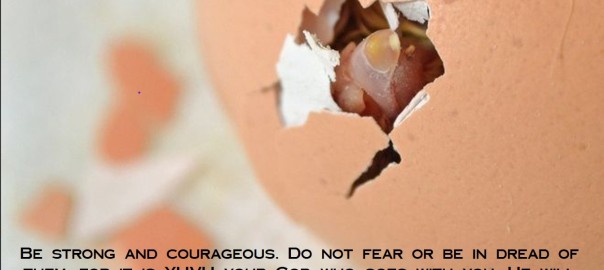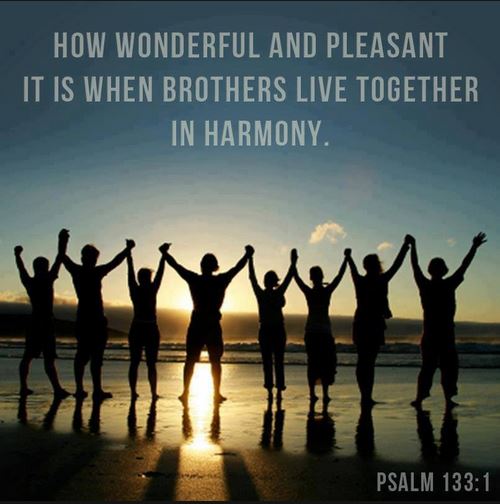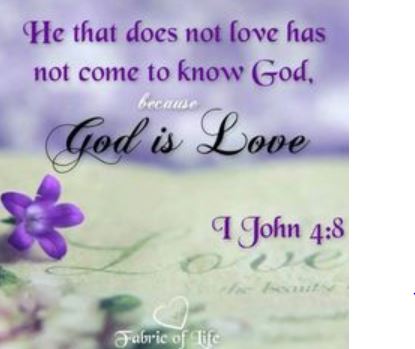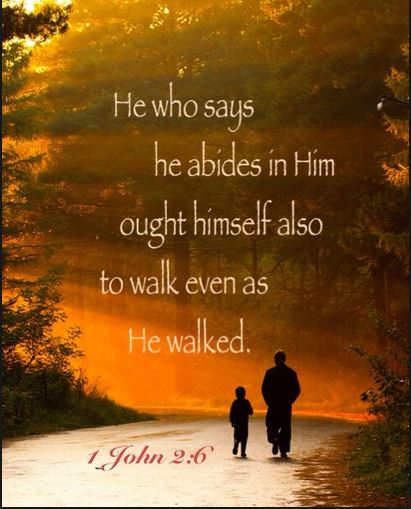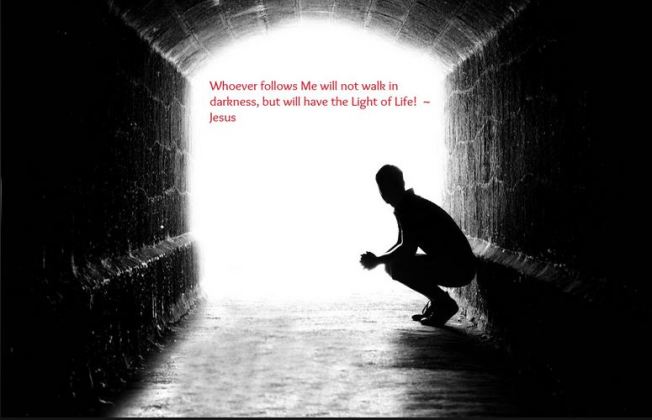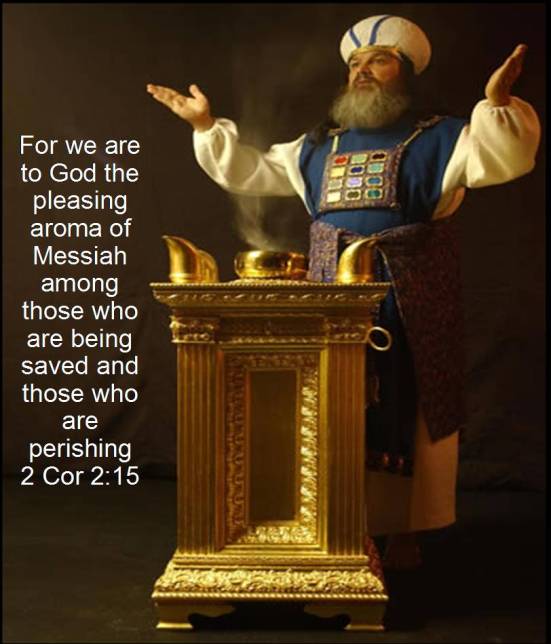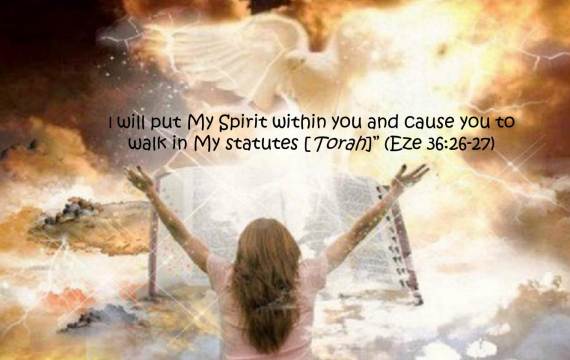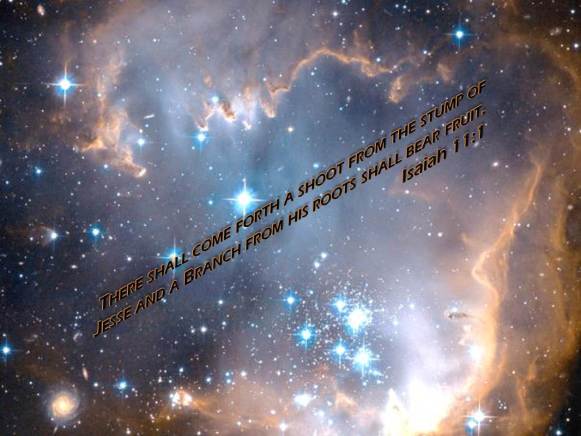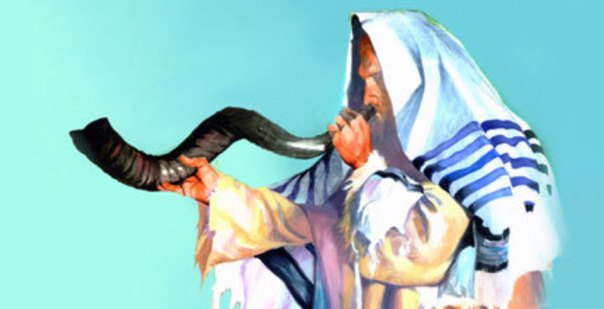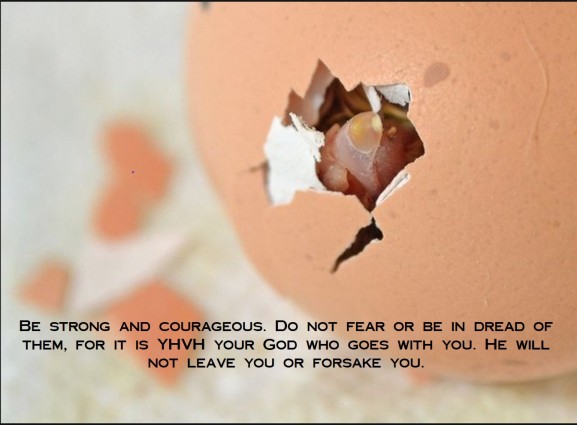
To our beloved readers: I write this article as one who has struggled for years with fear. Bit by bit I have overcome some of my “illegal” fears, but my struggle continues. I write this article to myself as well as to all of you. Let us keep our focus on the prize before us.
Fear is one of the emotions that YHVH gave to us for a specific purpose. We are to fear only YHVH knowing that He is much greater than us and more powerful. However, many of us fear much more than the awesome might of YHVH. We humans have many different types of fear. Yet Scripture tells us repeatedly not to be afraid.
In Exodus 1:19-45 and Numbers 13-14, we read that the Israelites refused to go into the Promised Land because of their fear of the giant people living there. As they focused on the problem it seemed to magnify, distracting them so that they forgot the signs and wonders that YHVH had already performed to release them from slavery in Egypt. As a result of yielding to their fear, the Israelites paid a heavy price. They wandered in the wilderness for 40 years until that generation of adults died out. They not only forfeited a much easier life in a land of abundance, but they failed to assume their divine assignment from YHVH. Instead of carrying out their mission, they spent the rest of their lives wandering around aimlessly. YHVH simply waited until a new generation was raised up to replace those who had yielded to fear.
What can we learn from the Israelites? In Exodus 19 and 20, we see that YHVH wants to meet with the people. The manifestations of His presence (fire, smoke, lightening and thunder and so on) made the people afraid. We are to have great awe and respect for the Ancient of Days, but we are not to be afraid to speak to Him and hear His voice. Now, we do not hear YHVH’s voice thundering, but instead we listen for a still small voice inside of us. YHVH has made it more comfortable for us to hear Him. In the Exodus account, barriers were erected around the mountain in order to separate YHVH from the fallen, sinful humans, but Yeshua has removed those barriers for us. The veil in the Temple has been torn and we are free to have a close personal relationship with our Father and His Son. Do we fear having an intimate relationship with our Father or with Yeshua? If so, what price are we paying for our fear? What are we losing?
Our Father spoke His commandments to the Israelites, but they were too afraid to continue hearing from Him. So He wrote out His commands on tablets of stone. After Yeshua returned to His Father, He sent the Holy Spirit to write His law on our hearts. The Holy Spirit not only has put the law on our hearts but works through us so that we can carry out YHVH’s commands. Do we fear having the Holy Spirit operate in us and through us?
Just as YHVH delivered the Israelites from bondage, He desires to set us free from our bondage to sin and to demons. Many of us deny that we can be in bondage to demons when we are already born again. Others of us are afraid of the spiritual realm and the idea of demons, so we stay in denial and try to ignore them. Just as termites in your house will not go away if you simply ignore them, neither will demons depart from you because you deny their existence or their presence. Do we fear seeking deliverance from demons who hold us in bondage and torment us? Do we fear the spiritual realm? As the Israelites were commanded to purge leaven from their midst during Unleavened Bread, we are expected to permanently purge sin and demonic influence from our midst. How does our bondage hinder us from completing our mission on earth and enjoying life in abundance (John 10:10)?
When the Israelites began to fear the giants in Canaan, they abandoned the only fear they were supposed to have, fear of YHVH. Their fear of the giants became so great that they disobeyed the only One who is to be feared. Is it the same with us? Do we fear that which challenges us to the point that we forget to fear YHVH and thus fail in our divine assignments? Will we fail in our mission because our fear is misplaced? What blessings and joys are we forfeiting because we give in to forbidden fears?
